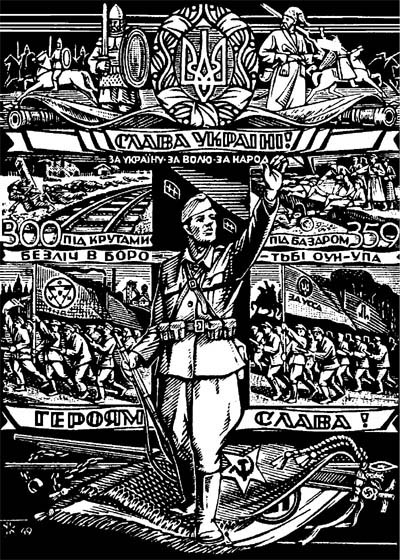
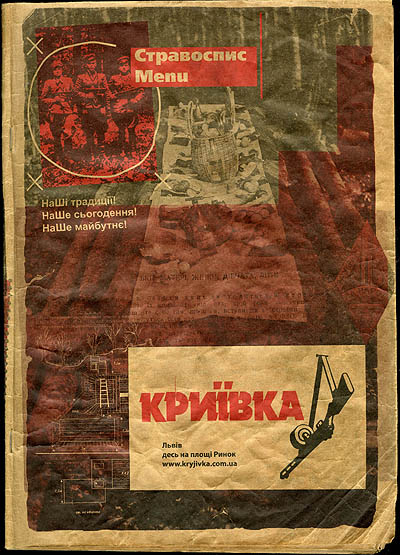
Of course, the entry is not always so easy, especially for those who attempt for the first time to penetrate the lion’s den of the UPA. In the wet dusk in vain we knock on the door of the closed pub, nobody comes to open it for us. In the twilight two men pop up to ask us what we are looking for. “We would like to enter the pub”, I say. “It is closed”, says coarsely one of them, as if this were not obvious. “Why do you want to go there?” “We heard that it is a very good pub”, I say insinuatingly. They look at each other. “The entrance is from the courtyard”, they say. We enter the courtyard. At its doorpost a young man is standing and smoking. “Where from?” he asks in Polish. “Hungary”, “Really?” he cheers up. “Polak, Węgier, dwa bratanki!” and he shakes hand with each of us.
The courtyard entrance is also closed. Some six or seven persons are talking in front of it. “Is it closed?”, “No, full house”, they answer emphatically, to let me clearly know where our place is in the queue. Well, if it is there, then we won’t get in today. Dispirited, we turn back. The man is still smoking there at the doorpost. “You did not like it?” “We probably would have liked it, but we could not enter, there is full house.” He looks at us, pondering, he sips a last puff from the cigarette. “Polak, Węgier, dwa bratanki. If it is all right for you to join my group, I will take you in.”
He stops us in the middle of the courtyard. “I go ahead, and you come when I beckon for you.” The peep hole opens, a dialog starts. He looks back and beckons for us. The Ukrainians standing in the queue cast an evil look at us while we march into the inn in front of them.
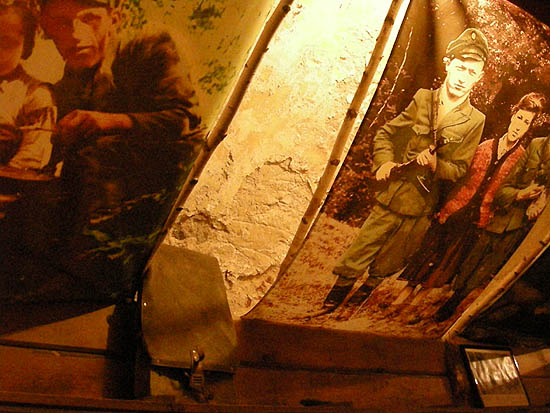
A long, narrow room, patriotic photos and posters around, on the one side the counter and on the other, on the floor and on the gallery, roughly squared off and fully crowded tables and benches, and beer, lots of beer. Wojtek guides us to the group sitting at the floor, all Poles. A three-member Ukrainian band plays Polish songs for them, an accordionist, a drummer, and a violinist woman. “I’ve brought friends!” he exclaims proudly. “Hungarians!” Acclamation, they give us place on the crowded bench, they bring more chairs. A burly Pole tries to speak in Hungarian to us, he worked in Mohács. The idyll is completed by the the old Bandera’s photo filling the whole wall behind us, in Munich, gently leading his grandchildren in front of his Volkswagen, before the bullet of the KGB would have done away with him in 1957.
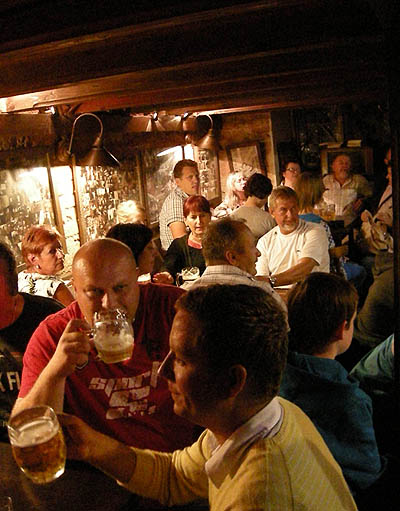
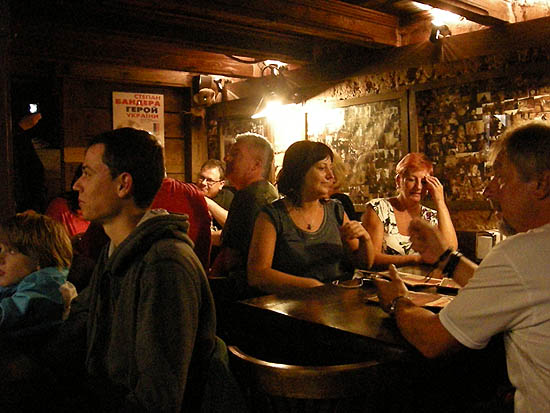
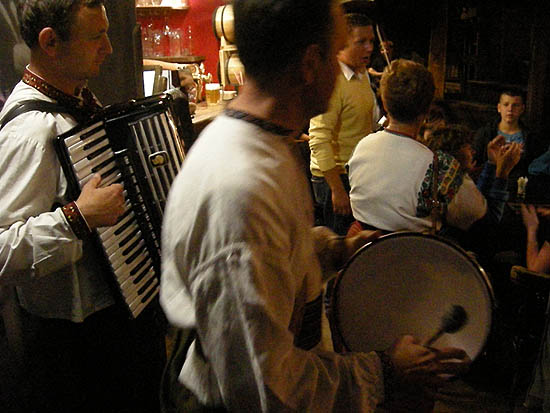
While the first beers come out, I look around in the back yard. Walls covered with camouflage patterns, chairs and tables made of ammunition chests. Later we also descend to the basement: a ceiling covered with camouflage, with the magnified photos of UPA soldiers on it.
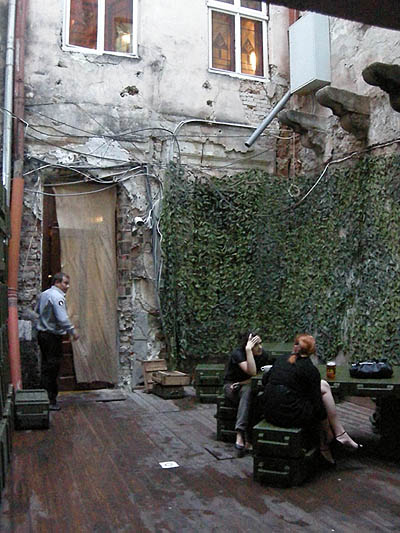
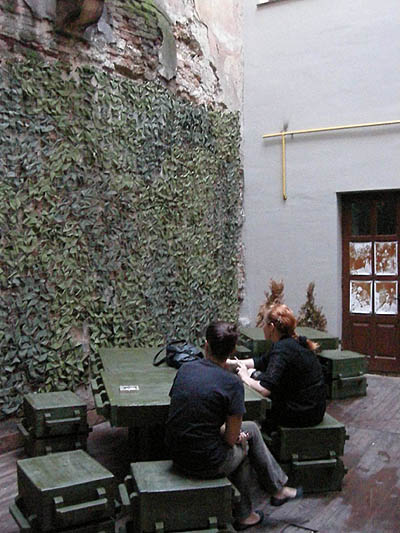
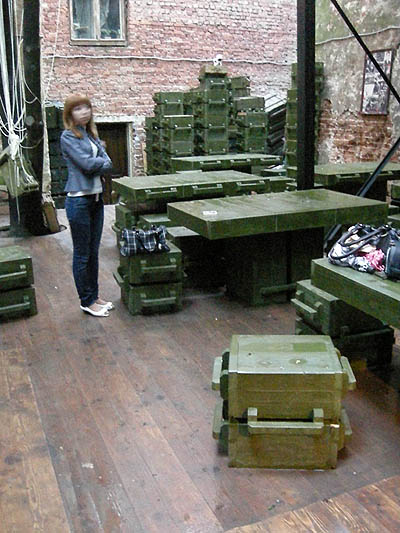
There comes the well-worn menu, which, with its typography, photos, newspaper cutouts, figures representing weapons and bunkers looks much more like a brochure or a samizdat than a proper menu. As an appetizer we may request “the Hero’s first Communion”, which is red borsch prepared with beer, we can choose between the “Nachtigall’s smile” carp, named after the first Ukrainian SS corps, and the “from the San to the Don” trout, and we can accompany it with Forest Brothers or Muscovites’ Bowels cocktail. Finally we ask for the Gauleiter’s dinner (beef fried with goat cheese, onions and potatoes) and the Letter from the bunker (chicken baked in pastry with vegetables).
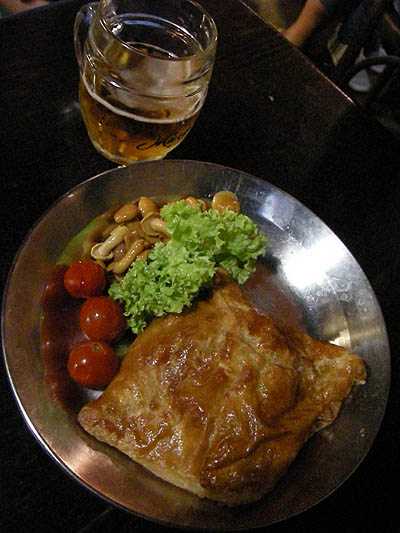
The plates also figure in English on the menu, whose design, together with that of the whole place, suggest that the UPA haunt is also offered as a thematic restaurant, such as the Marxim in Budapest or other similar pubs preserving the décor and air of Communism in a concentrated form. I do not even willingly go to these latter, I have no nostalgia for systems which surpassed by hundreds the cleansing activity of Shukevich and his men. Nevertheless, a large difference is that the post-communist nostalgia pubs recall a virtually toothless lion with a good amount of relief and irony, while the UPA pub glorifies a still vibrant nationalism which, as a state ideology, traces back the country’s independence to the Ukraine collaborating with the Nazis, and as a consequence, it condems to absolute silence the question of the Poles and the Jews, and later of the Germans and Hungarians exterminated and wiped out by the Ukrainians. And this jovial glaze smeared on the genocide makes even more dreadful the air of the place.

We invite Wojtek for a beer, he turns out to be a guide from Zamość just over the border, who often leads groups to Lwów. “What makes you bring Polish groups to such a place?” A long lecture follows on what a bogey the UPA is in Poland, and that one must bring Poles here for the sake of reconciliation, to let it see with their own eyes… And who with whom and for what reason has to reconcile. That his grandfather’s family was destroyed by the Nazis, but he also shot more than twenty Germans, and Wojtek had to ask for his personal permission to go for a German scholarship… And the other half of the family by the Ukrainians, but the Polish partisans also exterminated Ukrainians and both together the Russians… So there is plenty of work to do.
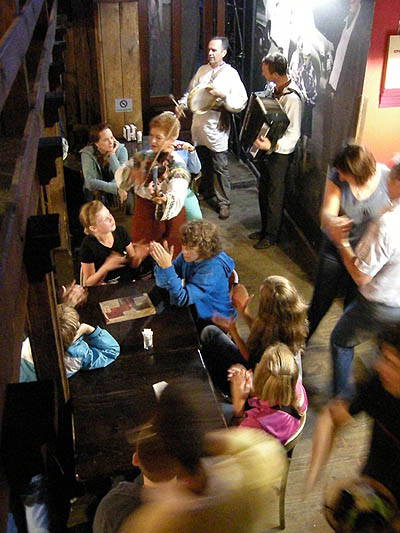
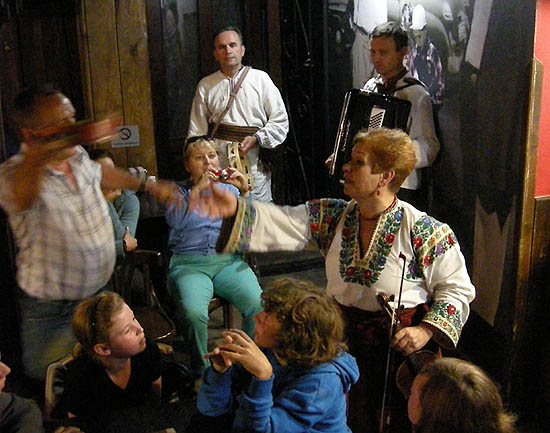
To promote the general reconciliation, and also to reciprocate the hospitality of the Poles, we decide to order them a Polish song. The small orchestra is just having a break, only the Ukrainian nationalist company is beating their hey-hey-hey-hey on the gallery. I approach the accordionist. “Would you please play the Tylko we Lwowie?” По-польськи не співаємо, we do not sing in Polish, he says, looking aside. “But this song also has an Ukrainian text!” I say. He looks at me, and in an articulated tone, so that I would finally clearly understand it, he replies: “We do not know that song.”
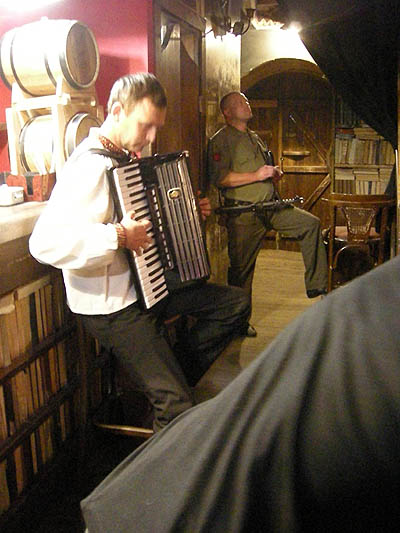
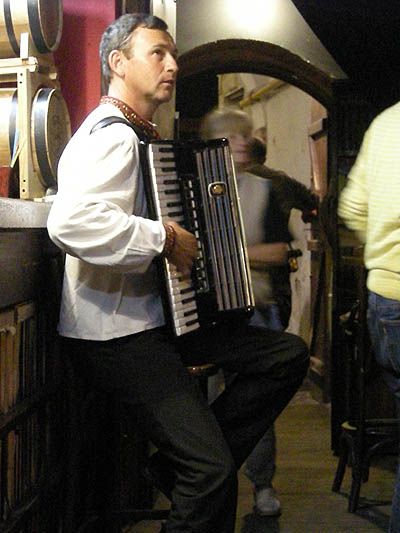
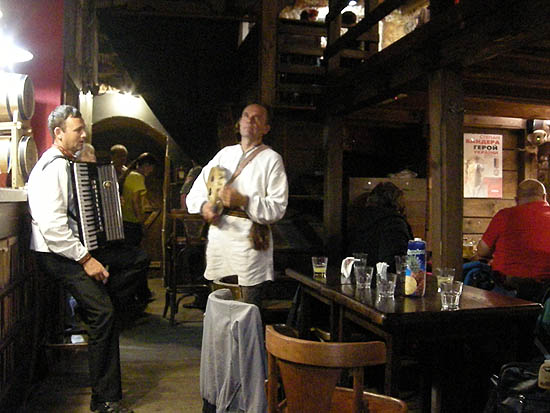
The teeth of the reality flash out from behind the tourist-teasing decoration. Lwów has to wait for the reconciliation for a while.
Emanuel Szlechter – Henryk Wars: Tylko we Lwowie! (Only in Lwów!), 1939. Performed by the legendary tango singer Albert Harris, and the Odeon orchestra
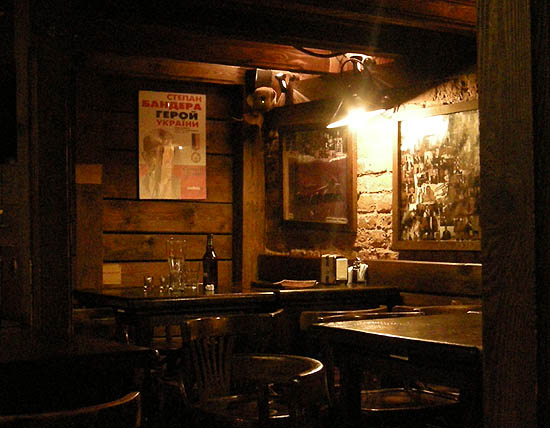
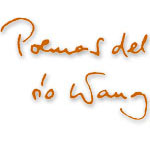




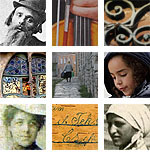
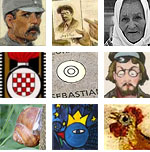
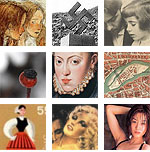
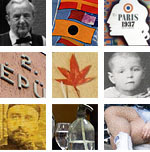
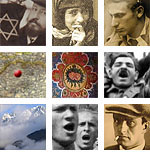
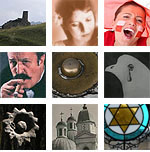
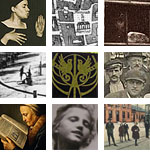
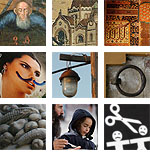
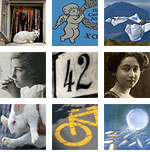
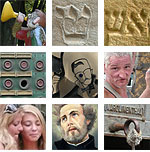
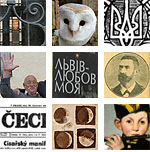
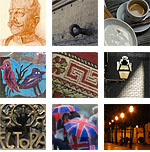
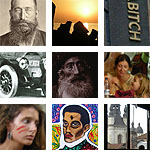
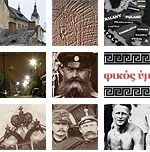
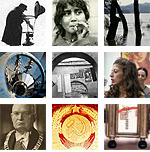
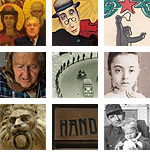
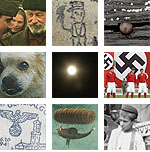
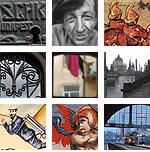
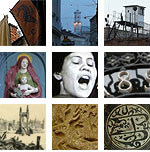
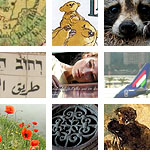
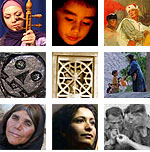
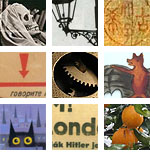
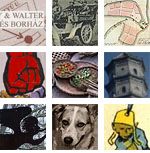
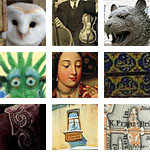
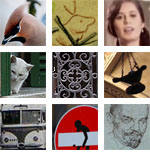
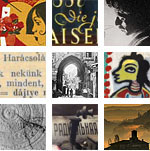
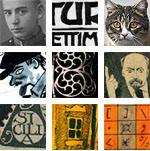

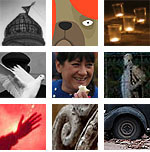
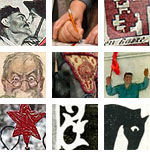
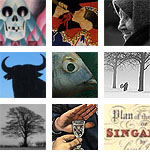
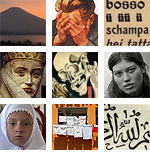
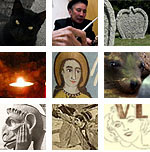
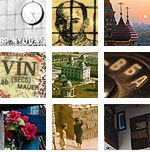
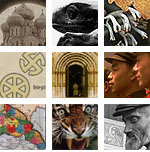
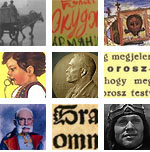
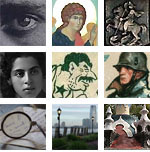
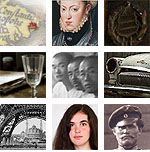
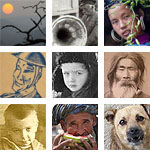
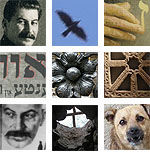
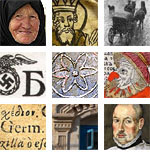
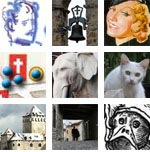
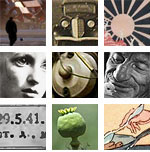
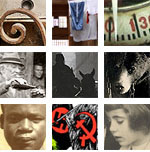
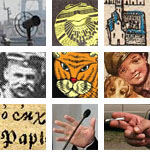
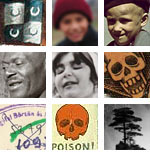
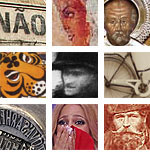
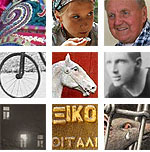
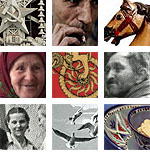
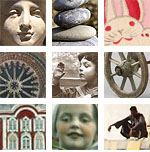


3 comentarios:
I guess it may give an Austrian in a Marxist retro pub, or a Hungarian in a Ukranian UPA retro pub, a peculiar feeling of a touch to history which used to project mortal danger, but isn't acutely dangerous anymore. Maybe like caged tigers in a zoo. Nobody in Ukraine calls for extermination of Poles or Hungarians nowadays.
I'm afraid that for Russian and Jewish tourists, the feeling of danger may be more acute/revolting, because the near-mainstream mass organizations in Ukraine, such as Tiagnibok's Svoboda projected to take many seats in parliament this year, do yell about mass slaughter and hanging? I often hear raving reviews of Lviv's cafe and music scene but I often fear that my appearance and my accent and my understanding of the tragic local history will darken the imptression ... that for me, old Lemberg just may not be the place to go for fun.
Something similar is what we are talking in the Hungarian version of this post. I would summarize only myself: I do not like neither the red neither the brown "retro" feelings. But in Hungary there is a strong nostalgie for the communist regime (which is called after its leader Kádár-regime). A hard mentality problem exists in Hungary: 40 years "old" people who were 18-20 years old at the ending of the Kádár-regime, they have a hard nostalgie of it "In that time you have to shut up and do not need to work on your workplace" - which is the certain point of the Hungarian problems and the symbols (in my view) the red retro pubs in Budapest.
I have called our great political philosopher István Bibó who mentioned the same: since the real roots of these kind of problems are not identified and solved, the problem itself will survive "in the six-childrened mothers also".
I have to say I'm in love with this blog and the stories and the pictures. I check the archives as frequently as I can, they're amazing. Congratulations !
What program do you use for building the image mosaics ?
Best regards from Buenos Aires !
Publicar un comentario